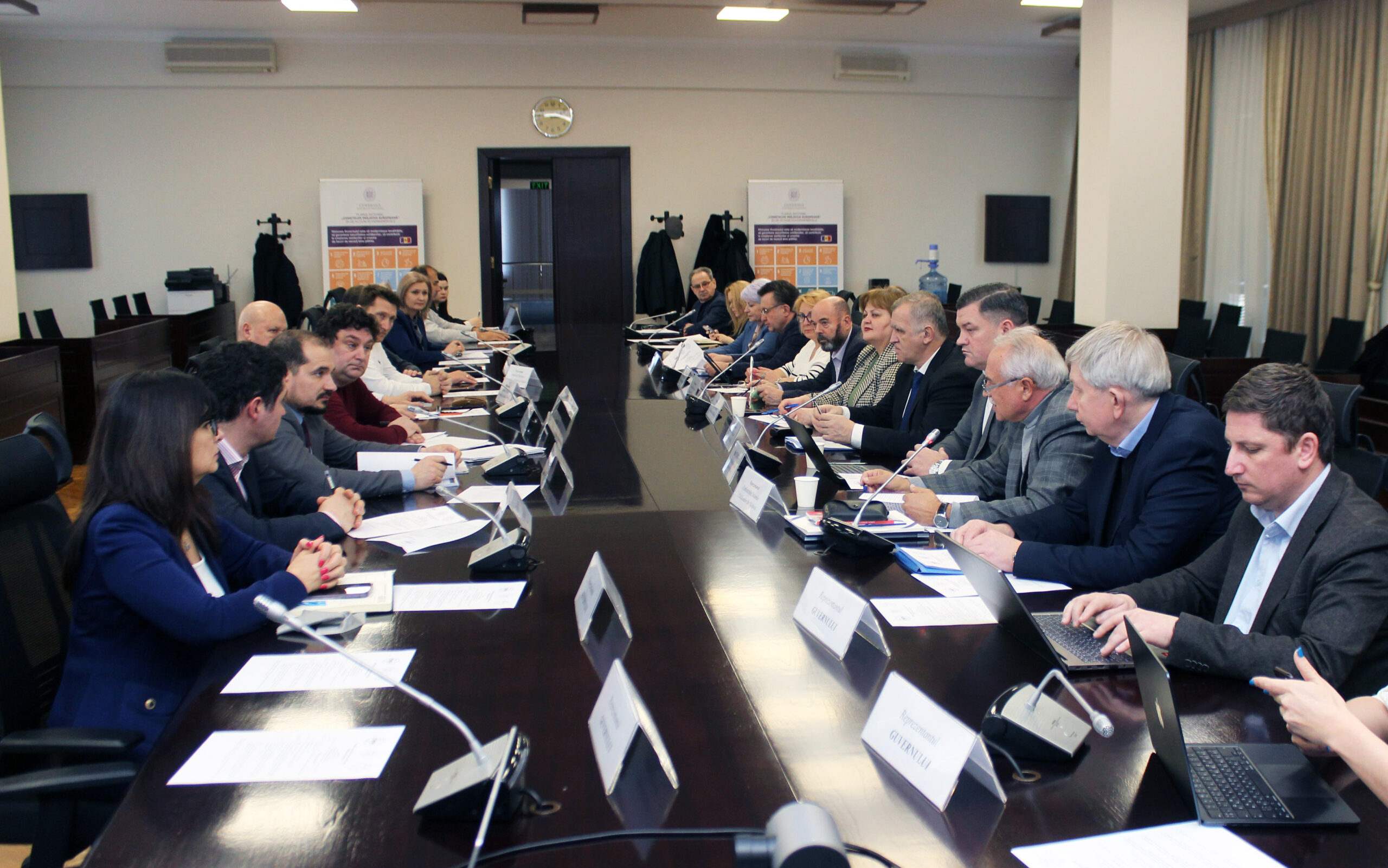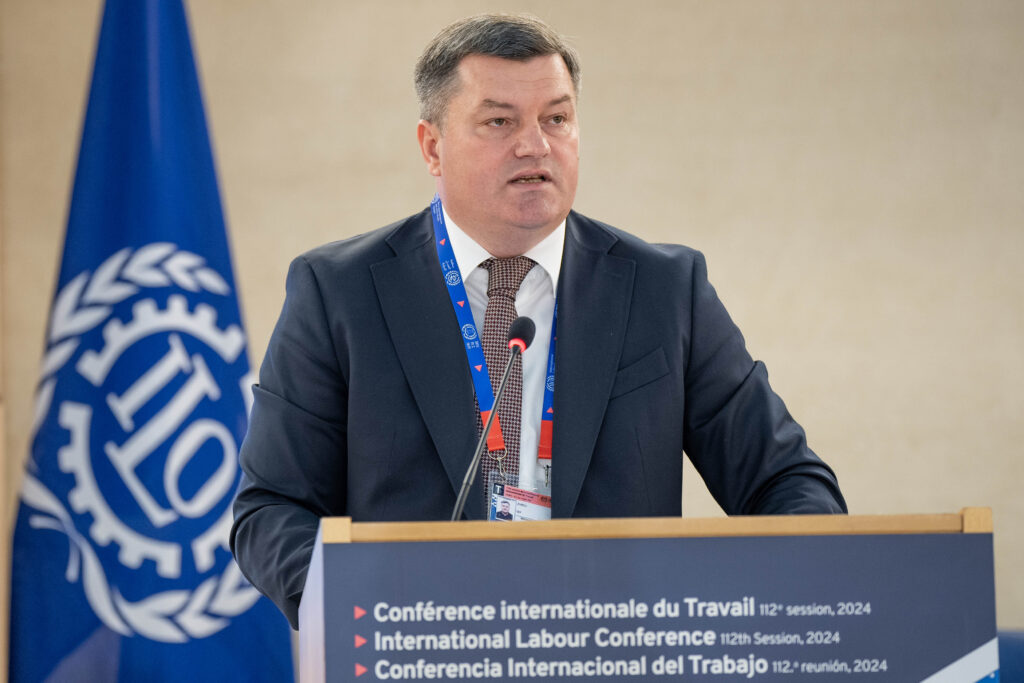The social dialogue partners – The Government, Trade Unions and The Employers – held a new meeting of the National Commission for Consultations and Collective Bargaining on 23 February at the Government House to address the key issues on the agenda.
The agenda included the following issues: on the revision of compensation bonuses for work performed in unfavourable conditions; on measures concerning administrative reform; on the presentation of measures included in the Programme for the improvement of occupational safety and health in areas with high risks of injury and illness (construction, agriculture, manufacturing industry) for the years 2024-2028; on the draft National Programme for the reduction of undeclared work for the years 2024-2025; on the approval of the draft law on the amendment of some normative acts (Labour Code of the Republic of Moldova no. 154/2003 and the Contravention Code of the Republic of Moldova No. 218/2008).
With reference to the issue of the revision of compensation bonuses for work performed in unfavourable conditions, according to Article 139 of the Labour Code and Article 15 of the Wages Act No. 847/2002 for work performed in unfavourable conditions, compensation bonuses of a single amount are established for employees of any qualification who work in unfavourable conditions.
According to the trade unionists, the concrete sizes of the bonuses are set within the limits negotiated by the social partners and approved by the collective agreement at national and branch level. According to Article 18 of the Law on the Unified System of Salaries in the Budgetary Sector No. 270 of 23.11.2018, the concrete size of the compensation bonus for work performed in unfavourable conditions was to be established by the Government, which did not happen, although the provisions of Article 30 of the Law stipulated that the Government, within 6 months from the date of entry into force of this Law, will bring its normative acts in line with this Law and will adopt the necessary normative acts for the implementation of this Law.
The legislation of the Republic of Moldova establishes that in collective agreements, at branch level, the parties shall negotiate concrete sizes of compensation increases, depending on the degree of harmfulness, in amounts not lower than those established at national level.
During the meeting, the trade unionists stressed the importance of reviewing compensation rates for work in adverse conditions and presented several arguments to this effect. The social partners agreed to further examine this issue for discussion at future meetings.
The participants were also familiarised with the provisions of the Programme for improving occupational safety and health in sectors with a high risk of injury and illness (construction, agriculture, manufacturing, transport, etc.).
At the same time, the members of the National Commission for Consultations and Collective Bargaining discussed the draft National Programme for the Reduction of Undeclared Work for the years 2024-2025, which aims to achieve the following objectives: to improve the prevention and discouragement of undeclared work in order to increase the employment rate in the formal sector of the economy; to increase the efficiency of the application of sanctions through the modernization of the work of the State Labour Inspectorate; to increase the degree of detection of undeclared work cases through the modernization of the information system and that of data extraction and analysis within the State Labour Inspectorate; improving the regulatory framework governing the prevention and discouragement of undeclared work and the enforcement of sanctions for non-compliance; increasing information and awareness of the benefits of declared work, and other objectives.
The CNSM believes that this programme should include both incentives for employers to formalise and significant sanctions to prevent tax evasion and clandestine activity.
To watch all the topics covered at the meeting and see the discussions that took place, including presentations by representatives of the national trade union centres, access the video recording of the National Commission for Consultations and Collective Bargaining meeting of 23 February 2024 here.
The National Commission for Consultations and Collective Bargaining is an autonomous tripartite body of public interest, made up of representatives of the Government, Trade Unions and Employers, which is set up to solve labour and social-economic problems at national level.

